Of bookstores & reading clubs
Reading for pure enjoyment, for relaxation, for the suspense and thrill of the plot is an experience we have practically forgotten. Getting back to the pages of an unread novel, lying by your bedside for months, is indeed a great thing.
Recently, I visited a bookstore (about which I will elaborate later) and saw a man in his fifties reading a novel, a woman of the same age group reading while sipping coffee right next to him, teenagers browsing through Bangla classics -- everyone engrossed in a fictional world, where the characters were solely for their pleasure.
It was truly an encouraging moment for me. Middle age is a tough phase of life, when all sorts of responsibilities, relationship liabilities, and work-related frustrations tire you out. And in this dog-eat-dog kind of societal pressure, life is nothing short of a ruthless and competitive survival game. We miss out on the undemanding happiness of life, such as reading a novel.
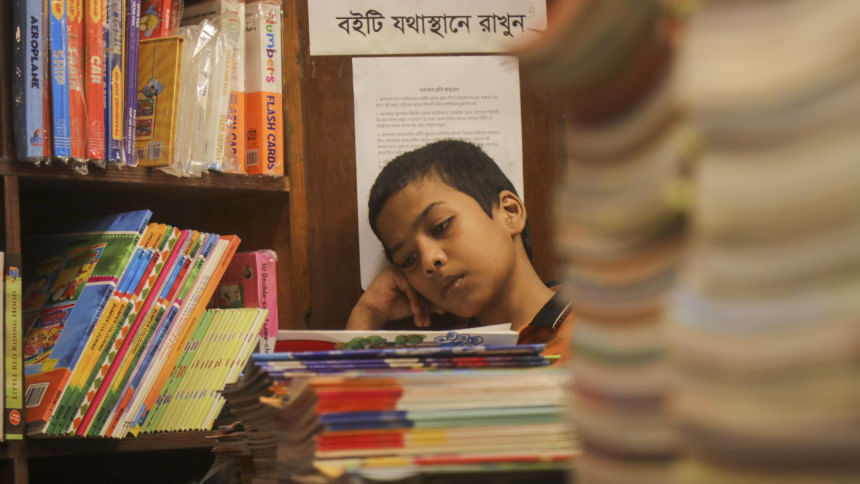
COME BACK TO BOOKS, INSTEAD!
Our book-reading habit has been replaced by scrolling through half-baked opinions that armchair intellectuals post on their social media handles or listening to them babble nonsensical stories about our present realities.
In my opinion, the world wide web can be a den of misinformation and disinformation. Anyone can challenge your understanding of any socio-political issue, cultural trend, or historical event with their hypothetical version of the subject and influence you to believe it as the truth.
Social media content cannot be regarded as truly informed reading. I, too, am one of those people with impulsive opinions on pressing issues, be they political or social. I have zero knowledge of what's going on around me. Instead, I rely on these misinformed posts and statuses to keep me updated with current affairs. Unfortunately, ignorant people like me thrive in the World Wide Web's virtual world that is faux in any actual realm.
I was brought back to my senses by a Zen practitioner, whose mindfulness showed me my tethered ties with the factual, physical world. Thus, my visit to this wonderful bookstore called Batighor, in Eskaton, where I realised Dhaka was reading -- especially older men and women of my age group, and after office hours at that.
It is such a brilliant way to unwind and give yourself some me-time. Taking a break should not be only eating out with friends. Reading or being in a bookstore is a better choice to enjoy leisure, wouldn't you agree?
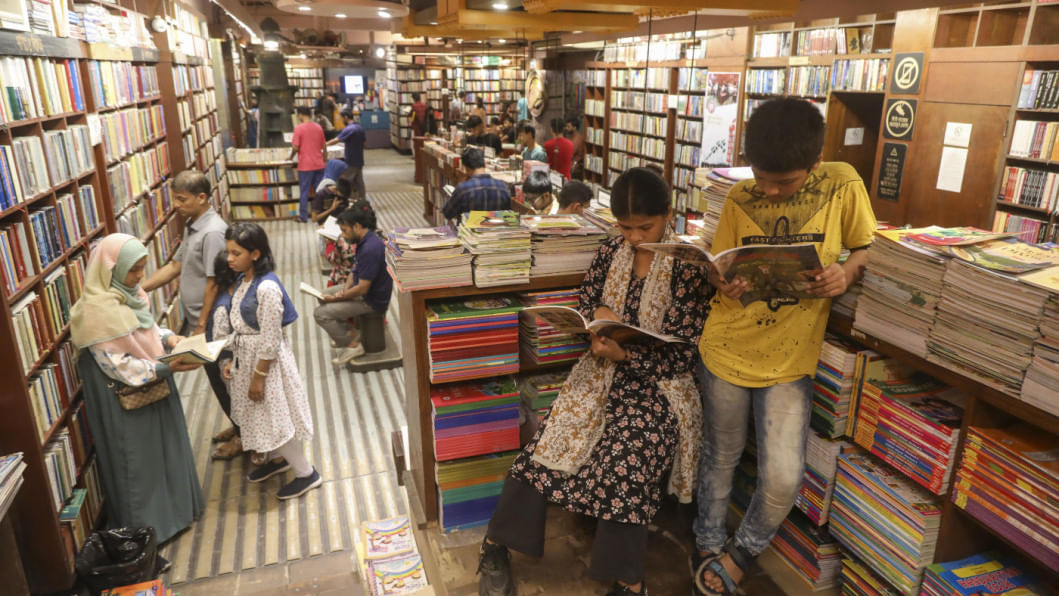
NONFICTION AND FICTION
I think there is a stronger pull towards nonfiction, then classic fiction and new fiction. In these politically charged times, staying updated on world affairs is the natural demand of current times.
Niladri Ghosh, manager, Marketing and Communication at Batighor, informs that the demography of people visiting their store is from 35 to 70 years, along with teenagers and school children. Adults read nonfiction mostly, while teenagers opt for popular bestsellers and fiction.
"Reading nonfiction has gained momentum for a while now, simply because people want to learn, expand their knowledge, and gain insights into the world around them -- mostly to understand, through the experiences and expertise of others, different perspectives on politics, wars, and current affairs," says Niladri.
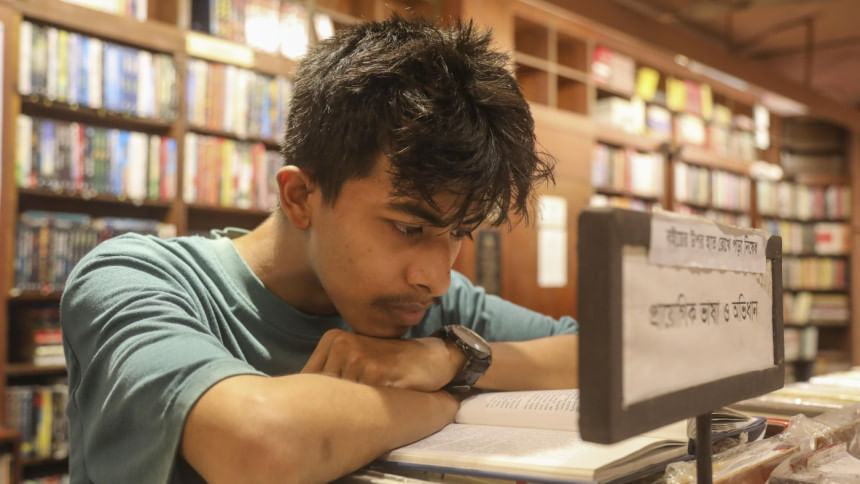
Aligning with Ghosh's observation, Mahrukh Mohiuddin, managing director of The University Press Limited (UPL), expresses that people favour nonfiction to make sense of complex issues. The diverse range of nonfiction -- from biographies and memoirs to science and nature writing, self-help, and career development — allows readers to gain a deeper appreciation for the world around them.
UPL specialises in books, journals, academic, history, biography, poetry, juvenile fiction, and more.
"From our experience, I can say that a well-written nonfiction book with compelling narratives and thought-provoking ideas can be just as engaging as any fiction. Our publication on the Masdar Hossain case, one of the most discussed and important cases in the history of Bangladesh, provided an outline of what the relationship of the judiciary with the government and public administration should be. The book is a Bangla translation of the judgment. It reached the book fair on the last leg of the fair, and it was in reprint within a month and a half after the fair ended. It just shows how much nonfiction interests people," Mahrukh explains.
"Books like Francis Buchanan in Southeast Bengal (1798), Muldhara 71 by Moidul Hasan on the Liberation War and Language Movement, and Baby's development in the first 1000 days by Selina Husna Banu are always in reprint. They have steady sales throughout the year. Sadly, there is no proper data on sales patterns to determine the top ten books or give us any idea about what people are reading," she says.
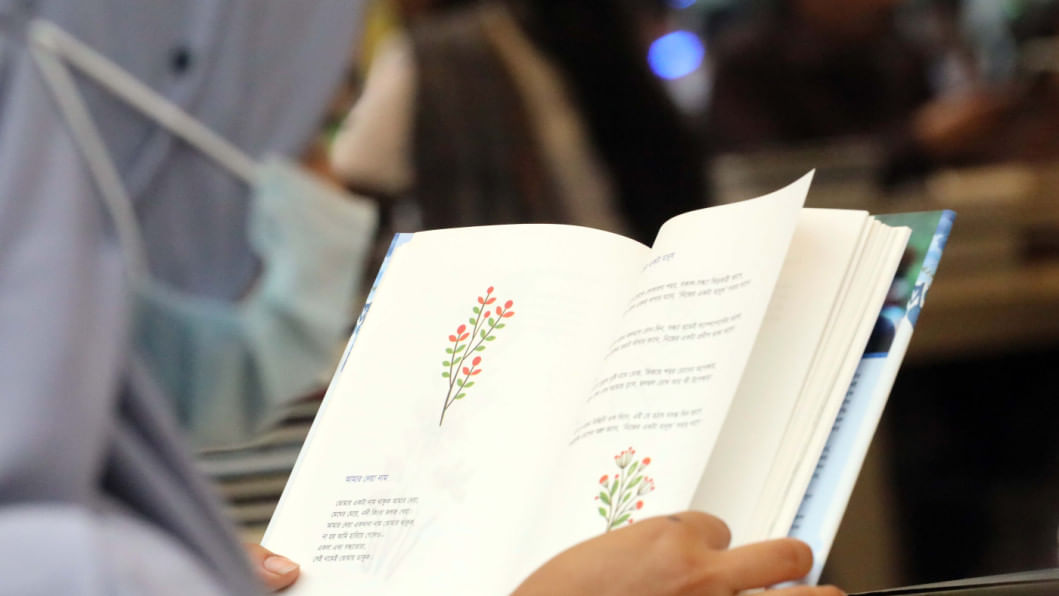
According to Mahrukh, bookstore displays and presentations -- or window dressings -- are very important. "A well-displayed book attracts good sales, but in our bookstores, the imported foreign books are put on proper display while our Bangla publications are neglected. It may be something to do with financial profit implications. A publisher is not involved in direct sales; it is done by the bookstores, so we do not know whether the readers are collecting it or not. We can just say about individual book sales through reprint orders," she explains.
"Top ten sales lists or top ten bestsellers' lists are not justified in my opinion. I feel that an author's family or friend can buy 50 copies of his book. That spikes up the sales but does not give an actual picture of it being a market hit or not," adds Niladri.
Bookstores cater to the needs of the customers, and having a proper bookstore or reading café in every residential community is very important.
Exploring diverse narratives and viewpoints, cultures, historical periods, and social issues shapes your intellectual and personal development. Our thoughts, perspectives, and ultimately ourselves are influenced by books and reading materials we engage with.
A PRINTED BOOK ANYTIME, PLEASE!
Dhaka has a handful of bookstores where you can enjoy reading; however, the city misses a structured book club, even though such clubs exist in an informal and personal setting. So, bookstores are what readers rely on.
I love to see schoolchildren in uniforms browsing through books in a bookstore; it lifts my positive energy. In this time when children are immersed in electronic and digital content, it is a reassurance that the core "porua janogoshti", or reader demographic -- starting from early teen years till the end of their university days -- still opt for the physical act of holding a book.
A book in your hand has a psychological impact; the feel and smell of the paper, the act of turning pages, and the graphics can all contribute to a more immersive reading experience.
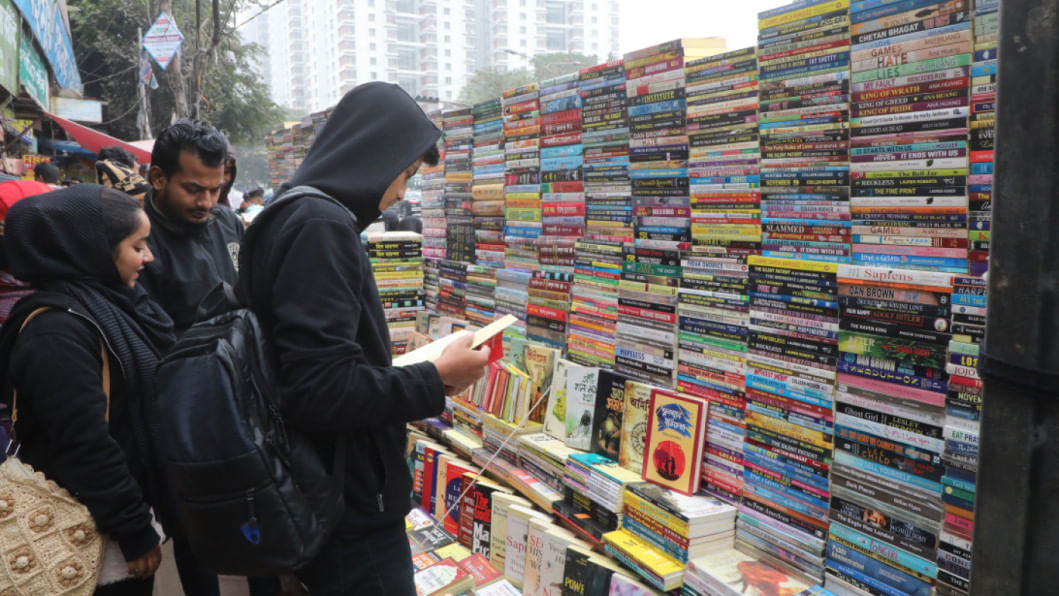
"A physical book can create a stronger emotional connection and improve memory retention compared to reading on a screen, where the temptation of infinite scrolling and distractions is hard to resist. In my understanding, there is an obvious shift in attitude, exposure, demands, and in reader's attention span.
"We had the leisure to read because we did not have this much access to information. Besides, today's kid has no pastime habits because they have an immense amount of performance pressure," she explains.
Books were an essential part of our upbringing. It is said that the characteristics of a reading audience have changed due to device use and e-books, but the act of holding a book and reading is therapeutic.
And, as the saying goes, you are what you read.
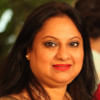
 For all latest news, follow The Daily Star's Google News channel.
For all latest news, follow The Daily Star's Google News channel. 

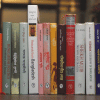


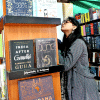
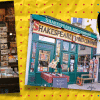
Comments